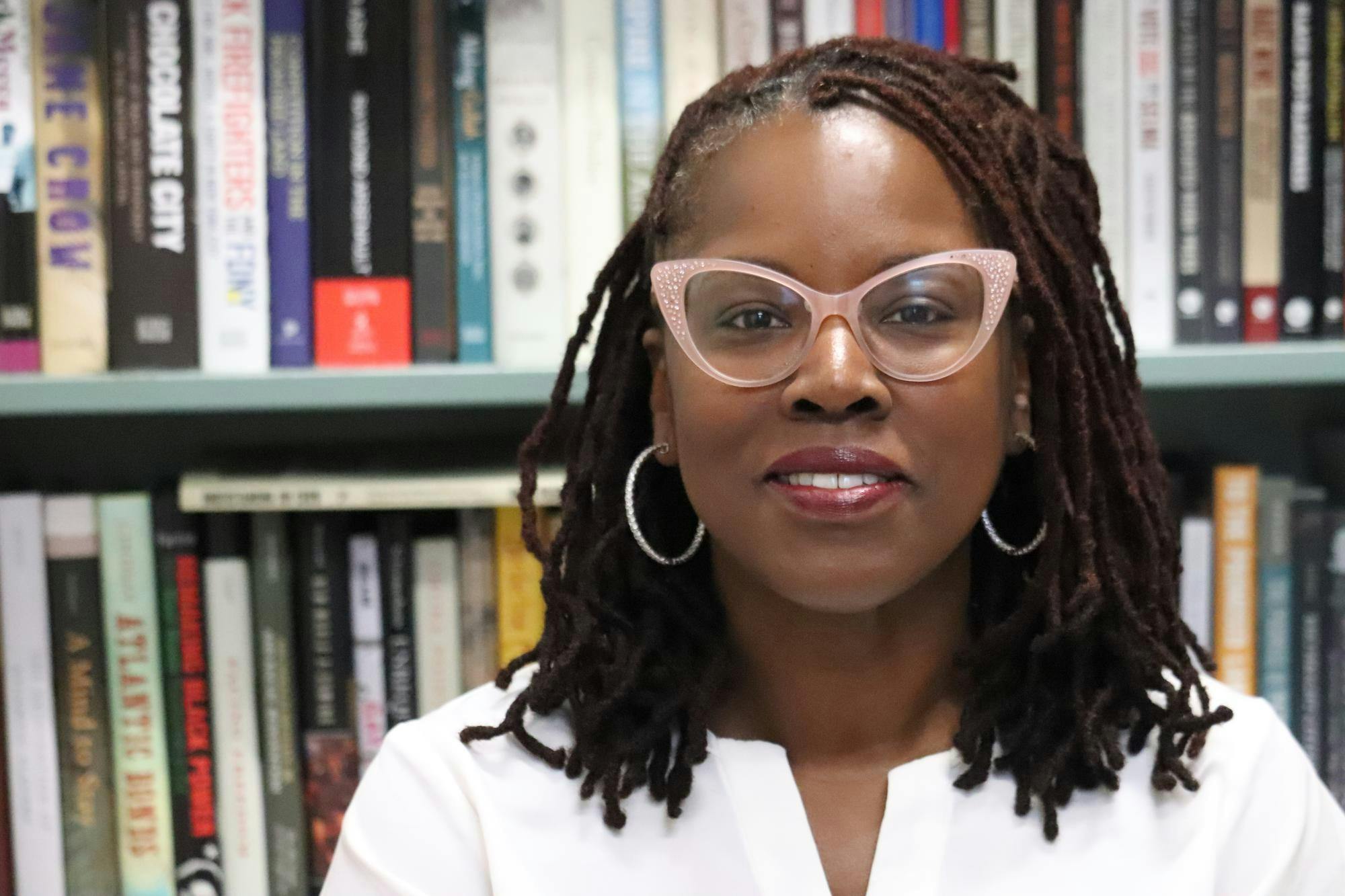Going through history books, you can commonly pick out the same figures you know to be influential. Important as they may be, there’s often part of the story that remains untold. Michigan State University associate professor of history Dr. LaShawn D. Harris has taken on the task of telling these stories from the framework and perspective of her own life.
Growing up in New York City in the 80s and 90s, Harris said she lived in the "Crack Era" of New York, and Harris recalls participating in the economy at the time.
"I was a participant in the informal economy," Harris said. "I got my hair done by people in storefronts. Being in the 90s, I bought illegal music. I bought, on the train, illegal videos."
Harris recognized these as the things people had to do to make money, and are some of the untold stories her research highlights. In her first book, "Sex Workers, Psychics, and Number Runners: Black Women in New York City’s Underground Economy," she examines the role of Black women in the economy and their unrecognized work.
Selling these goods and services was not regarded very highly in society. But, to the Black women in those communities, it was their livelihood, their joy and their community. Even the women more highly regarded in society had untold stories.
"Billie Holiday — jazz singer — she sang the song 'Strange Fruit' which is about lynching," Harris said. "She was a sex worker before she became, you know, the infamous 'Lady Holiday.' Ella Fitzgerald — another blues woman during the 1930s, 40s, 50s, really famous — was a numbers runner."
Like Harris, these women were also New Yorkers, and are part of the reason she is in her field of study. Influencing her work is those figures of Black history who are unapologetic in their Blackness and in their politics, listing influences from literature like Toni Morrison, Dorothy West and James Baldwin; and also influences from politics like Malcom X and Marcus Garvey.
"I love when people really confront people and take it to them," Harris said. "The courage that you have to muster up to respectfully do that, but just to do that. I love folks like that."
Another leader like this for Harris is Martin Luther King Jr., who Harris depicts in a more humanized way that may not be emphasized in school or the news.
"King is a young preacher, an outside preacher, 26 years old, comes to Montgomery and leads this boycott as a young person," Harris said. "I’m inspired by how he and young people become the faces of the civil rights movement, which was a really unpopular movement at the time."
The lessons King taught are still applicable to today’s politics. Harris stated that plenty of groups, including Black people, women, LGBTQ+ and others, have to continually fight for their rights. King helped in showing the way, recognizing the work he did in his youth but also the life he had outside of that.
"I wish people knew more about King in the terms of the joys of his life," Harris said. "The joys of being with his family which he, you know, sacrificed a lot. I wish people knew more about King and his craving for vacations. There’s a great series of photos of King in 1967, the year before his death, in Jamaica with Coretta and with his three children."
With political leaders, images like that aren’t always shown in the news or other media. It shows an important side to our leaders, Harris said.
"We just see (our leaders) as political and struggling," Harris said. "But to see them in these different types of moments, you wish that they had more of those moments."
Harris continues to highlight these untold stories and is putting out another book this coming year.
"Tell Her Story: Eleanor Bumpers, Police Violence & The Crime That Galvanized New York City" highlights the true story of Eleanor Bumpers, a Black woman who was killed by police brutality. Harris spoke not of the activism taken in the public as a result of her killing, but the family and what Eleanor’s life was like before she was killed and how things changed after her death.
This story is just one of many that has captured Harris’s interest. Getting to highlight the families and communities behind conflict is one of her favorite parts of her job.
"You do the work because you’re interested in doing it and you just love doing it. And you want to shed light on new issues, and you want to bring people’s stories to life," Harris said. "So the real reward is being able to do the work and get it published."
Support student media!
Please consider donating to The State News and help fund the future of journalism.
Discussion
Share and discuss “MSU professor works to document Black history” on social media.







